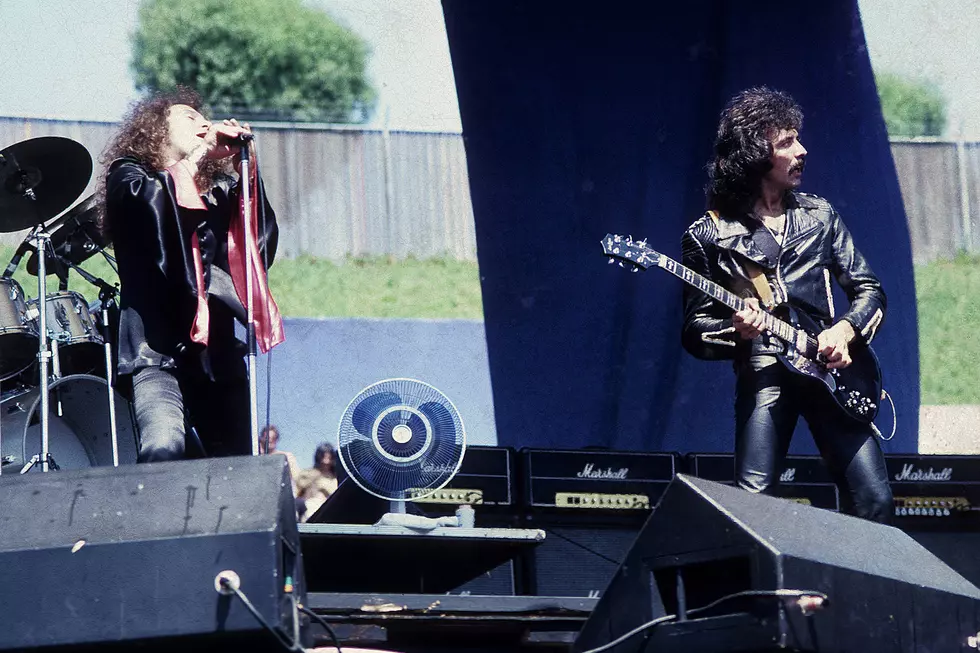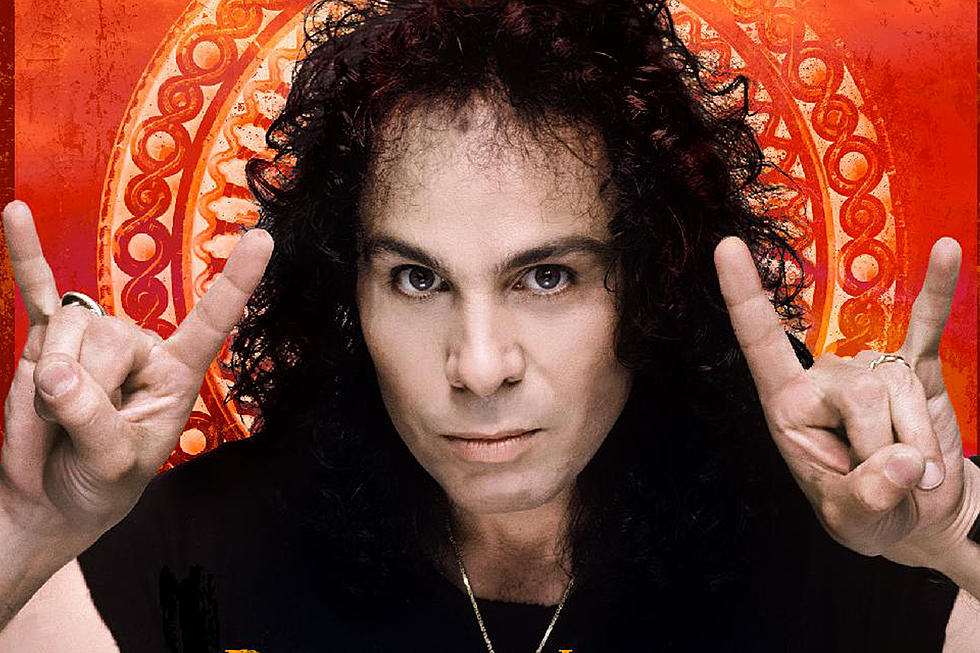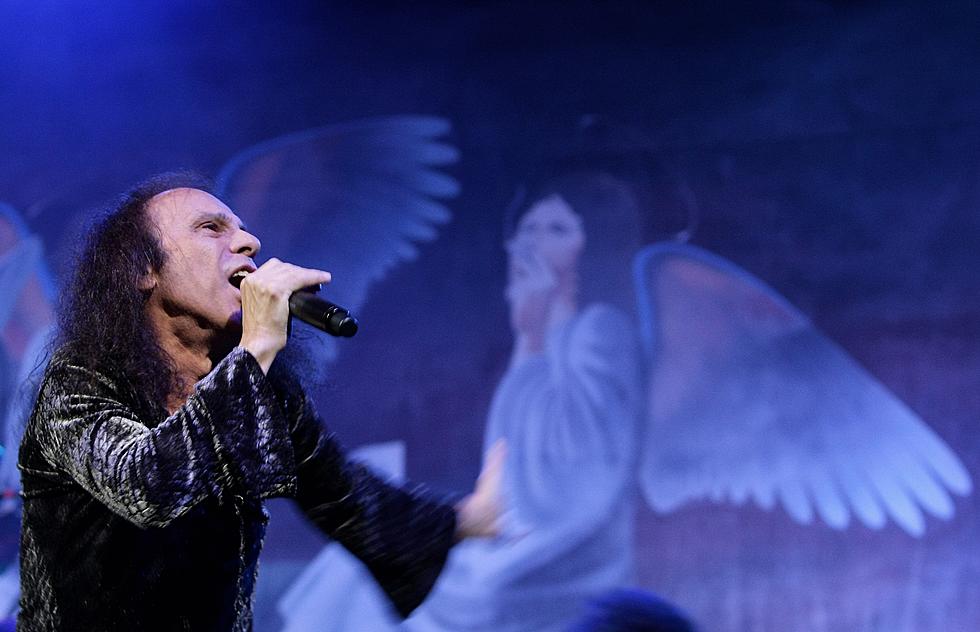
14 Years Ago: Ronnie James Dio Passes Away
Today marks the anniversary of the death of legendary metal vocalist Ronnie James Dio.
The most tragic thing about Ronnie James Dio’s death from metastasized stomach cancer in 2010 is that it likely could have been prevented. Dio, the man who’s commanding voice will live forever in metal history, was 67 when he died and he had not been tested for stomach or colorectal cancer in at least 10 years. The American Cancer Foundation recommends men and women over the age of 50 at average risk for developing colorectal cancer receive a colonoscopy every 10 years to detect and prevent the spread of colon cancer.
“All the doctors said if he'd have gone in [for a colonoscopy] a year earlier or two years earlier, they could have treated him,” said Dio’s Heaven and Hell and Black Sabbath bandmate, bassist Geezer Butler for Louder Than Hell: the Definitive Oral History of Metal. “If it had been stage one they could have dealt with it. But by the time Ronnie was diagnosed, he had stage four cancer, which was inoperable. The doctor hinted that it was just a matter of time and there was nothing they could do. It's really upsetting to think about that, and hopefully it will encourage people who need to have a check up to get it done.”
Ronnie James Dio's Final Show — Live With Heaven and Hell (2010)
Dio, who was suffering from abdominal discomfort saw a doctor in the winter of 2009 and after a series of tests he was diagnosed with cancer. He began immediately began am aggressive for of chemotherapy at M.D. Anderson Clinic in Houston, Texas. On May 4 Heaven & Hell canceled their summer tour dates and Dio’s last appearance was at the Revolver Golden Gods on April 8, 2010, where he was awarded “Best Metal Singer.”
In a black carpet interview with Artisan News Service, Dio spoke about how hard it was to undergo chemotherapy. “I feel good and bad at times. It’s a long process, chemotherapy is. I never realized what a difficult thing it is go to through,” he said. “The more you have, the more it piles up on top of you. It takes longer and longer to get over it. And I find it very difficult to eat.”
At the same time, Dio remained positive and seemed convinced that he was going to win his battle with cancer. “If you’re determined to beat it than you have to with what you believe is going to be [the treatment] for you. I go to a great hospital in Houston which is called M.D. Anderson, which I think is the best hospital in the world. I have the best doctor in the world who I really trust and really believe in. So I think I’ve done all the right things. It makes me feel positive about my life and positive that there’s a lot more of it to live.”
On May 4, Dio issued a statement that read in part, “With your continued love and support, we will carry on and thrive. There will be other tours, more music, more life and much more magic.” Sadly, Dio’s cancer progressed quickly and at 3 p.m. ET on May 16, just 12 days after Dio’s final statement, his wife and manager, Wendy Dio, confirmed that the metal legend had died.
“Today my heart is broken," Wendy Dio said. “Many, many friends and family were able to say their private good-byes before he peacefully passed away. Ronnie knew
how much he was loved by all. We so appreciate the love and support that you have all given us…Please know he loved you all and his music will live on forever.”
In his own statement, Black Sabbath guitarist Tony Iommi said, “Ronnie loved what he did, making music and performing onstage. He loved his fans so much. He was a kind man and would put himself out to help others. I can honestly say it's truly been an honor to play at his side for all these years. His music will live on forever. The man with the magic voice is a star amongst stars, a true professional. I'll miss you so much, my dear friend.”
Heaven and Hell — Ronnie James Dio Tribute Set at High Voltage Festival (2010)
That it looked like Dio’s health was improving wasn’t the only reason why his was so surprising. The diminutive singer with the larger than life presence had dealt with major setbacks before and always prevailed. He had been in and out of Black Sabbath twice before reuniting with Iommi, Butler and drummer Vinny Appice in Heaven & Hell, and before that he had clashed egos with Rainbow guitarist Ritchie Blackmore, struggled with the lineup for his own band Dio and wrangled with two indie labels that went under, but always came out fighting.
In the history of metal, there are good singers and then there are legends – vocalists who are identifiable with the first note of song. Dio’s operatic vibrato was unmistakable and extremely versatile. His was a voice that could sooth like a soul crooner one minute and roar like vengeful tyrant the next. Even when he was embellishing tunes with melodic interjections like ‘alright,’ ‘yeah’ or ‘ooooohh-oooohhhh,’ he loomed high above most vocalists of his era – even though he stood at just about five-feet-four-inches tall.
In addition, Dio was a commanding presence, matching his majestic vocals with theatrical hand and arm gestures. He was synonymous with heavy metal and very likely introduced the metal salute, the devil horns, to the public (though Gene Simmons thinks he deserves credit for that).
“I would see my grandmother, when I was a little kid, holding her hand, walking down the street, she would see someone and make the devil horns,” Dio recalled in Metal: A Headbanger’s Journey. “I learned it was called the malocchi. Someone was giving us the evil eye, so [with the horns my grandmother] was giving us protection from the evil eye. So, did I invent it? No, but [did I] perfect it and make it important [to metal]? Yes, because I did it so much, especially within the confines of Sabbath.”
While some musicians have called Dio stubborn and controlling, he was always dignified and polite to the press and always took the high road, never speaking poorly of his peers or adversaries, even when they tried to start a beef.
There have been many singers that have copied his stage moved and were inspired by his vocal technique, but there has never been anyone like Ronnie James Dio, one of the greatest metal legends of all time.
READ MORE: 20 Best Rock + Metal Entertainers of the 1980s
In the years since Dio's death, the Ronnie James Dio Stand Up and Shout Cancer Fund has become one of rock's more prominent charities, annually staging the Ride for Ronnie and Bowl for Ronnie fundraisers while continuing to try to support research that leads to early detection, prevention and possible treatment of prostate, colon and stomach cancers.
Loudwire contributor Jon Wiederhorn is the author of Raising Hell: Backstage Tales From the Lives of Metal Legends, co-author of Louder Than Hell: The Definitive Oral History of Metal, as well as the co-author of Scott Ian’s autobiography, I’m the Man: The Story of That Guy From Anthrax, and Al Jourgensen’s autobiography, Ministry: The Lost Gospels According to Al Jourgensen and the Agnostic Front book My Riot! Grit, Guts and Glory.
Ronnie James Dio Through the Years
Gallery Credit: Lauryn Schaffner
More From 99.1 The Whale










